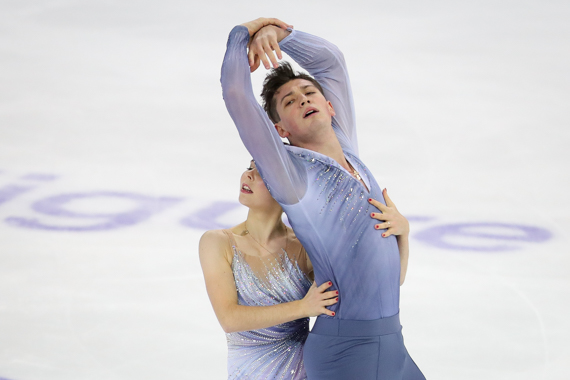
Anastasia Mishina - Alexander Gallyamov started in the Olympic season in a new status of world champions and at each tournament tried to confirm the high level. Students of Tamara Moskvina and Artur Minchuk won all the international competitions in which they participated, "Finland Trophy", two stages of the Grand Prix series, qualified for the final.
Next week, the Russian Championship will be held in St. Petersburg, where athletes will compete for tickets to the Olympic Games in Beijing. And at the end of
November in Sochi, at the stage of the Rostelecom Cup Grand Prix series, we talked with skaters about the performances in the season, the complication of the programs and how they see the ways of further development of pair skating.- In Sochi, there were not without blemishes in the short program, but you skated the free skate so that the audience gave a standing ovation. What can you say about the performance at the Sochi Grand Prix?
Anastasia: This performance turned out to be a little more difficult than the previous one, because in Japan the short program went well and everything worked out at once. And in Sochi, somehow initially, a little did not work out and I had to make efforts, fight in my head with some experiences, in order to then, in an arbitrary way, make everything clean. It worked. It's great that after a bad short we could get together for a good free skate. Of course, we will draw conclusions.
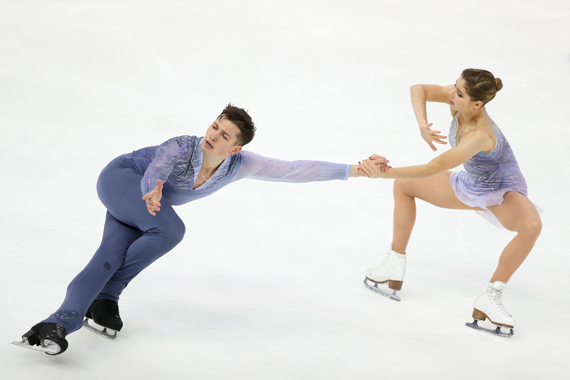
Alexander: We also had this in the short program at the Finland Trophy. It happens: after an unsuccessful rental on the second day, you want to do everything better, to compensate for what was not shown on the first day.
In Japan, at our first Grand Prix, there were certain difficulties in the sense that it was still difficult to rebuild in time due to a change in time. At the NHK Trophy, as in Finland, there was a very early training session and it was actually difficult to get ready and go out. I immediately remembered a phrase from my childhood, when coaches said that you should do this element so consistently that at night you wake up, get up and do it. In reality, that's what it was. In our time, we would wake up in the middle of the night, go out and do it. Fortunately, we were well prepared to perform all the elements in any state.
- You skated the free skate in Sochi, but what else can be improved in it, in your opinion?
Alexander: It wasn't a perfect rental yet. There is something to add, to improve. In the last part of the program, you need to skate more powerfully, at speed, so that the audience feels this increase in music, which would merge with our skating, and the powerful ending of the program brought the audience to ecstasy. We want the fans to be delighted with the program.
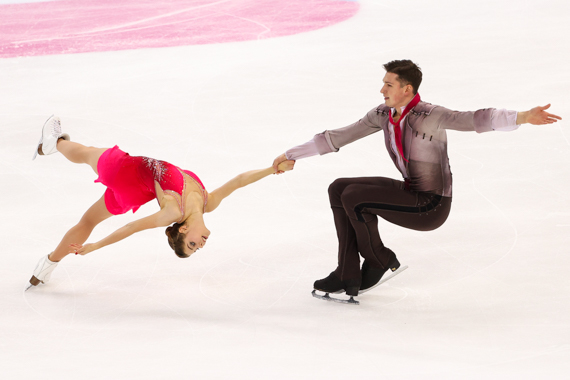
- Yesterday after the rental of your free skate, the audience was delighted.
Alexander: And we felt it. When the second rietberger ejection was performed, the audience exploded, which pleasantly surprised me and gave me strength - you could go further to the final support without thinking about fatigue. Just to make the audience have even more emotions, excitement.
Anastasia: Of course, it is nice that in Sochi and Japan we performed almost in front of full stands, because there were not so many spectators at the Grand Prix in Europe.
And if we talk about programs that can be improved, then we are systematically moving towards giving the perfect rentals towards the end of the season, at the main starts.
- You started this season in a new status of world champions. How important was it for you to confirm that at the competition?
Alexander: We understood that after the World Cup there would be increased attention to our pair, because perhaps someone thought that we did not deserve to win the World Championships in Stockholm. Therefore, we wanted to show and prove with our further stable performances that the victory was not accidental.
- At almost every start, you and the coaches make certain changes to the programs. Is this process endless?
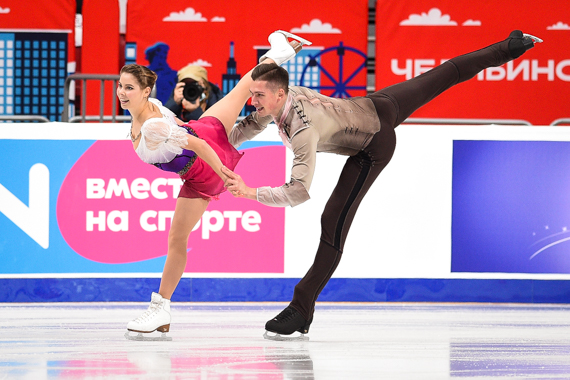
Alexander: Tamara Nikolaevna (Moskvina – ed.) decides a lot in this matter. She's our boss, and I think there will be changes, you'll see them.
Anastasia: Tamara Nikolaevna has such a principle of work, constantly improving something, changing, trying. This can concern everything, any nuances of the program, costumes. She watches our programs both live and on the screen, chooses, advises, which is better. We change something, adjust it, try it at every competition in order to choose the best one in the end.
- Do you like that?
Anastasia: It's hard. It's very difficult to constantly rebuild. But it's also interesting. There is no routine when you do the same thing for a whole year.
- Adjustments and improvements in the programs are one thing, more serious changes - of course, it is necessary to try not in the Olympic season. However, have you thought about complicating the programs, because a few years ago in the Group of Velikovs you tried triple Lutz?
Alexander: We have already talked about this many times.
Anastasia: We just don't have time.
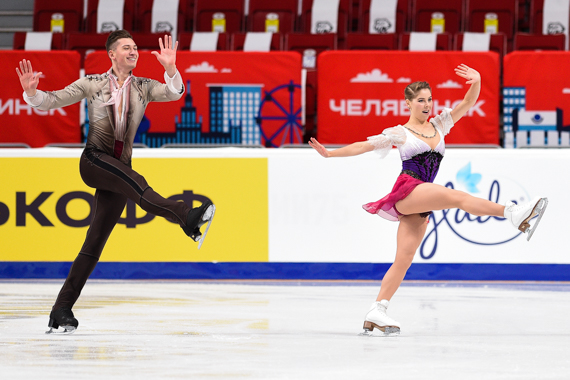
Alexander: The Olympic season is not a time for experiments, because it is necessary to roll out a new free program, to refine it. And in the future, of course.
But you know, you can jump in training, shoot and post a video, but it's not the same with if you skate the whole program, with this element in competitions. At competitions, in addition to the technically stable performance of an element in the program, it is necessary to cope with excitement, nerves, tension. There are more psychological problems, which is why it is necessary, as I said, that all the elements are stable and rolled out in the program.
Yes, we performed the triple lutz two years ago, showed it at the first stage of the Cup of St. Petersburg. Then we tried relatively successfully, not always stable, but there was an attempt, and we keep it in our heads.
Anastasia: In any case, it is good that we have the opportunity to progress. It's not that we've reached our limit, we can't add anything else to programs. No. There is something that turned out that in the future you can work out and insert.
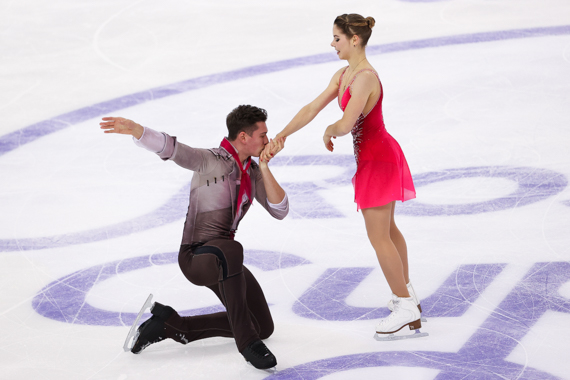
- How do you see the further development of pair skating? More precisely, how would you like it to be?
Alexander: It would be nice to introduce bonuses for the original supports. Because I want to dilute the uniformity of supports in the programs. If the original things are valued with bonuses, then this will be an incentive for athletes to look and try. Of course, now this is taken into account in the assessment for components, but it seems to me that with bonuses it would be more effective.
Anastasia: It seems to me that pair skating can develop in technical terms. Perhaps they will add the 5th level of difficulty in supports, twists... They will start doing quadruple ejections, twists, because they will warm up the interest of the public. Still, pair skating should not become dancing on ice. If everything goes in the direction of choreography, then pair skating and ice dancing will not differ much over time.
- Are you ready to get more complicated?
Anastasia: Gradually, yes. Like the rivals, so do we. We look at each other and move all in the same direction.
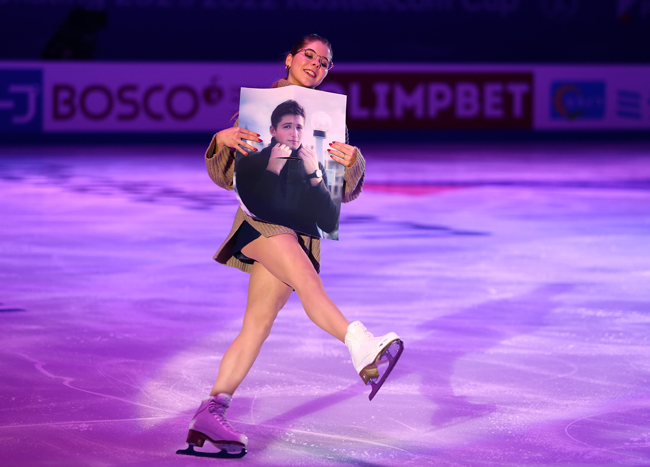
- The Olympic season takes a lot of time and effort. Everything else, studies, other things in the background?
Anastasia: Unfortunately, now we do not have time to fully engage in studies. But the university decided not to take a year's pass. Then it will be difficult to recover, psychologically to start all over again. If possible, we try to practice. Tests, sessions will be passed later. In spring, in summer...
- You are in the 3rd year of Lesgaft, which of the two of you helps whom?
Anastasia: Probably in the spring, we will rewrite the notes of someone else. [Laughs.]
- You are quite different in temperament and character. Do you feel like halves of one whole in a pair on the ice?
Anastasia: The fact that Sasha and I are different probably helps us. Two people with similar characters do not always get along together. And we've been riding in pairs for so long. Of course, there can be quarrels, like everyone else. But now they are reduced to a minimum, we get along well.
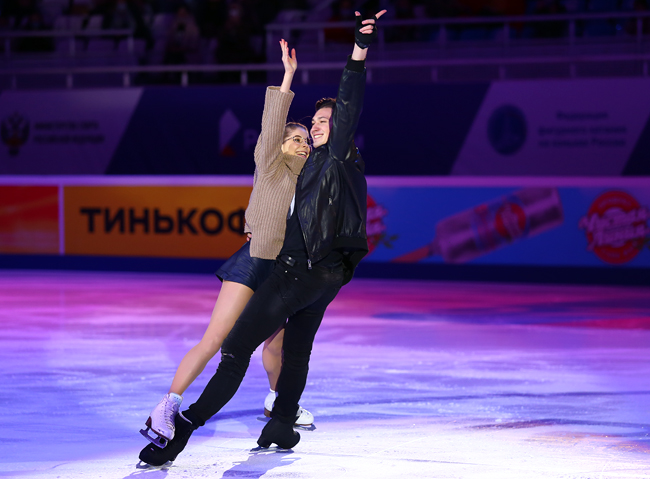
- You have an interesting feature number this season, which, as we think, reflects your characters. Who staged it?
Alexander: Sergey Komolov. We worked with him before, he gave us a program. We liked it, so we decided to try to make a demonstration number.
We had a few musical variations, a few ideas, but the main thing is that we wanted to cheer up the audience, try ourselves in a new genre. After Esmeralda, there was an understanding that this should work out.
Sergey suggested a lot, composed the music, and it turned out great! The most difficult thing for me in this issue is the props. I have to carry an electric guitar with me, I have the image of a rock star. But it's worth it, because the audience comes to the demonstrations to get high, and we get high with them.
Anastasia: Tamara Nikolaevna gave us complete freedom of action in this demonstration. Her only condition was that the room was not boring. She said, "Do what you want, I give you freedom, just don't take tedious and boring music."
- And Tamara Nikolaevna is right. The number turned out to be interesting and will be remembered by the audience. Good luck guys!
Olga ERMOLINA, Tatyana FLADE
Photo by Julia KOMAROVA and Mikhail SHAROV

No comments:
Post a Comment